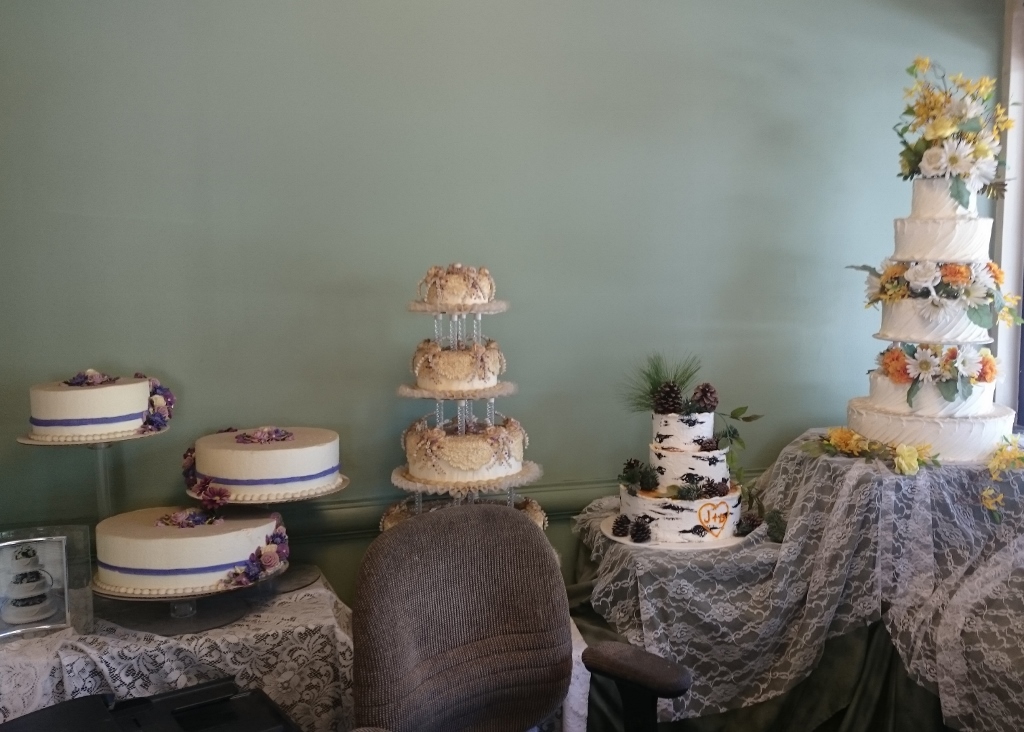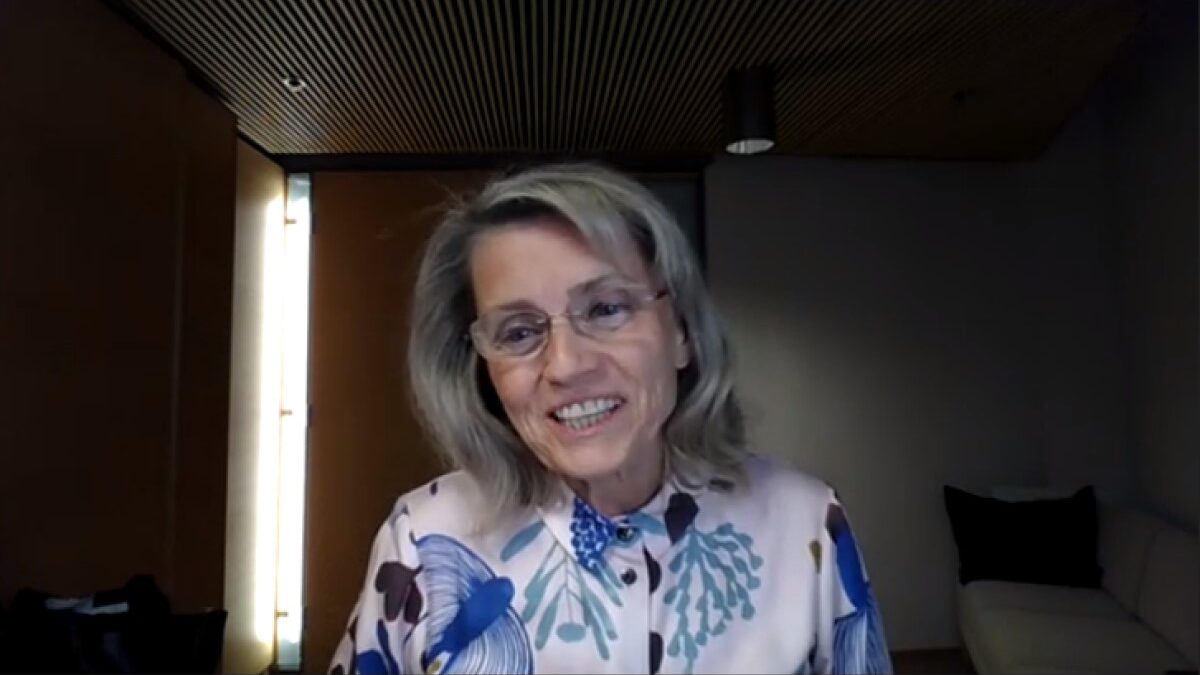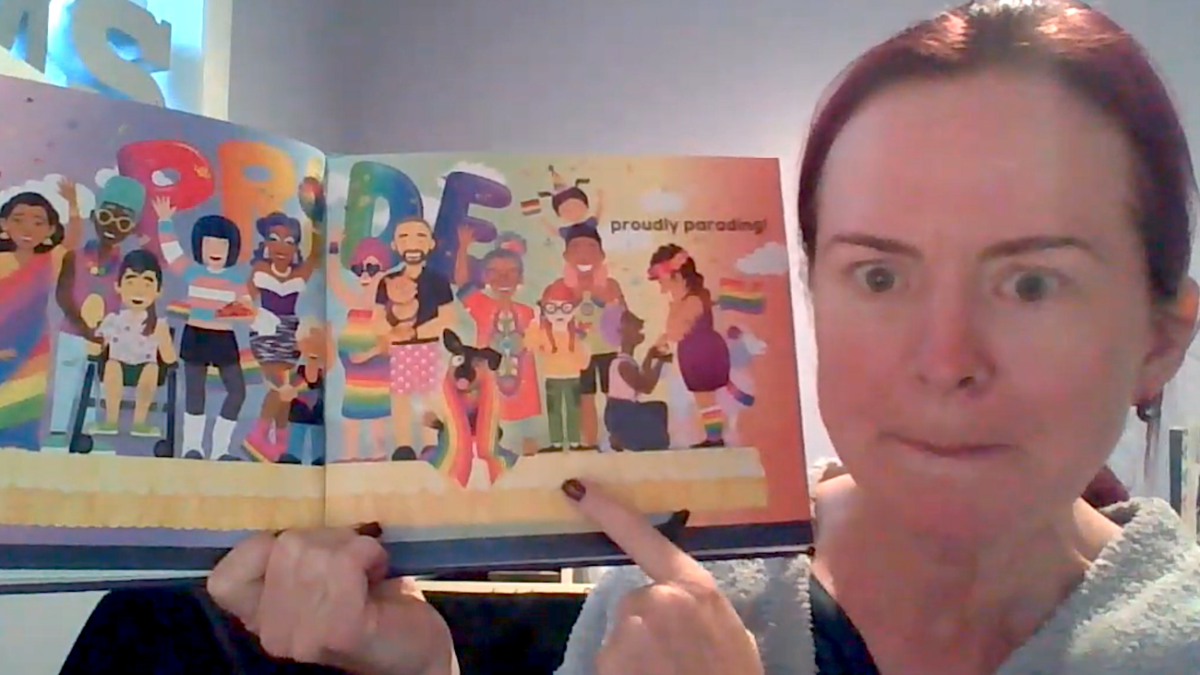
DENVER – At the far end of a parking lot in an inconspicuous strip-mall in suburban Denver sits Masterpiece Cakeshop.
In the summer of 2012, two men enter the shop. One of them heads straight for the wedding cake displays, which sits in an area painted in muted colors and strewn with lace table cloths.
The employees tasked with handling the front of the shop are busy tending to consumers, so owner Jack Phillips, the kind of guy who’s more comfortable dealing with sugar paste than strangers, jumps in to help out.
We’d like you to design a cake for our wedding, the man explains, motioning to his partner at the other side of the shop.
Sorry, Phillips responds, I can’t create specialty cakes for gay weddings. If you’d like, I can sell you anything else you want — cupcakes, pastries, whatever.
Anger flushes over the would-be customer, who stands up, curses, and flips off Phillips while he heads for the door — a reaction that is well within the normal bounds of serious disagreements in American life.
The entire episode takes, maybe, 30 seconds.
***
When Phillips declined to participate in celebrating the wedding of David Mullins and Charlie Craig that day, his life was upended in ways that people who argue passionately about the culture war on social media or political blogs might not fully appreciate.
But those 30 seconds were clarifying in many other ways. It showed us that most of the media are incapable (or unwilling) to lay out the debate over religious freedom in an honest or enlightening way. It’s shown us that many of those who praise the diversity of American life have, in reality, lost their compassion and the ability to tolerate anyone who disagrees with their worldview.
Those 30 seconds have shown us that those in power — including every presidential candidate — are unwilling to stand in the way of a state that has the power to crush dissent by forcing citizens to choose between their livelihoods and their faith. No one likes to be called mean names.
Lakewood, Colorado
Aesthetically speaking, Masterpiece Cakeshop feels like the past. In Lakewood, a well-established neighborhood situated between Denver and the foothills in eastern Jefferson County, prosperity is crowding out the commercial diversity. There’s a Whole Foods and King Soopers within a mile of Masterpiece. Both are eating into Jack’s bottom line, and both would probably make you a 10-layer cake celebrating your polyamorous transgendered wedding if you asked.
Masterpiece opened in 1993 here, not far from where Phillips has lived most of his life. His mom and dad, a World War II vet who fought on the European front, brought up his two sisters and two brothers nearby, attending high school only a couple of miles from the shop.
The people of Lakewood grapple with many of the tensions of contemporary American life, including the increasingly intrusive presence of the state. Three of the top five employers in the city are government institutions. Locals refer to the seat of power in Jefferson County as “Taj Mahal,” and with its outsized importance comes convoluted regulatory demands and, over the years, a fair amount of corruption.
Not that any of those factors concern the T-shirt-and-jeans-outfitted Phillips, who admits his disposition is conservative though not especially ideological. When Sean Hannity pops up in our conversation about the looming presidential election — a contest he follows only tangentially — Phillips admits that though he might be able to pick the famous conservative talker out of a lineup, “I don’t know if I’ve ever listened to him.”
Phillips was brought up a Baptist of sorts. Like a lot of Americans, he stopped attending church as soon as he was old enough to get away with it, only to find God again when he had kids — a son and two daughters. Now, nothing matters more, he says.
***
A half hour after Mullins and Craig storm out of Masterpiece Cakeshop, the store’s phone rings. An irate caller asked Jack if he’s the jerk who turned away the gay couple. Well, no, I just don’t design cakes for same-sex weddings; I didn’t turn away anyone, he explains.
This distinction fails to pacify the agitated man, and after offering an array of colorful suggestions, he hangs up. In the hour between the incident and closing time that Thursday night, Phillips estimates he received another six comparably incensed calls berating him for cake-denying bigotry. When he finally got home, his inbox is fuller than it’s ever been. And it’s not because locals have a sudden hankering for Funshine Cookie Pops.
Jack begins his demanding work at 6 a.m. the next morning, so he can prepare for a Bible study class he hosts on Fridays. The phone is already ringing. It rings all day. All day Saturday (probably all day Sunday) and all day Monday, as well. Angry voices, swearing at him; demanding cakes; threatening him. Jack stops answering.
Then the protestors show up.
One of the disadvantages of showing off your righteous passion in a suburban parking lot in Lakewood, Colorado is that very few people can see or hear you. So the activists picketing Masterpiece that weekend were forced to pick up their rainbow flags and move to a busy intersection on nearby Wadsworth Ave — right across the street from another bakery. Actually, within the five square miles radius of Masterpiece there are a dozen places that could have accommodated the jilted couple.
Then again, this has nothing to do with a cake.
On Monday, the TV stations showed up. By Tuesday, Jack was on local news. Then the social conservatives of Focus on The Family, which is located in Colorado Springs, called. And then Fox News. By Wednesday, everything blew up.
***
“I heard about it three days after it broke,” Nicolle Martin, Phillips’ lawyer tells me, “and I’m not typically a local news follower.” What Martin said she saw on television was a man of faith being maligned as a bigot and a hater for doing nothing more than following his conscience.
“Oh my goodness, I thought: I’m going to tell this gentleman that he has a right as an artist not to create something that expresses an idea that is against his will and faith, and that he is still free to operate his small business,” she goes on. “I just wanted him to know that he wasn’t alone should something legal come of this — even after they get their 15 minutes of fame.”
Martin is relatively new to First Amendment litigation, having worked in insurance law most of her career. Then, as she started having kids, she transitioned into corporate law. The latter, she assures me, is prosperous but far less stimulating intellectually and spiritually. After hearing her choke up about the case, it’s pretty obvious.
Martin’s office was kitty-corner from Masterpiece, so she drove over and dropped off her card. Don’t worry, she assured Phillips, “common sense will prevail.”

The Tribunal
The first letter from the Colorado Civil Rights Commission arrived soon enough. Americans, evidently, no longer share a “common” sense about societal norms. So Mullins and Craig had lawyered up immediately — contacting the ACLU, once champions of free expression and now champions of hurt feelings.
The charges against Masterpiece Cakeshop were riddled with mistakes — it named the wrong statute and the wrong entity, for starters. Nevertheless, the Phillips’ years-long, business-obliterating Kafkaesque journey through state hearings, protests, lawyers, and possibly a Supreme Court case had begun. Jack would be hauled in front of a tribunal that would determine whether his Christian faith was genuine.
It is worth mentioning that public accommodation laws have been on the books for a while. Phillips had never turned anyone away in his shop, and the incident at Masterpiece Cakeshop in 2012 went down before gay marriage was legal in Colorado, or anywhere else in the country, for that matter. In fact, at the time of the incident, Colorado’s constitution featured an amendment, passed in 2006 by a 56 percent margin, codifying marriage as a union between one man and one woman. (Disclosure: as a columnist at The Denver Post during these battles, I regularly argued in support of gay marriage.)
The commission was not above retroactive punishment, however. At the time, being found guilty of violating civil rights laws didn’t only mean the end of Phillips’ life’s work. The punishment for refusing to make a special cake for a gay wedding was $500 and one year in prison per charge (jail time was only later amended out of the law when general public learned about the statute).
The shop was not only ordered to alter its policy and start participating in gay weddings or else face debilitating fines, it was told to provide comprehensive staff training, ensure compliance, then file quarterly obedience reports with the government for two full years. In these reports, Phillips was to describe exactly which remedial measures the shop had taken to conform, and document the reasons any other patrons were denied service.
Colorado’s Thought Police would teach Phillips how to stop himself acting on any ideas that were heretical.
The commission could only pass quasi-criminal judgments. In the end, these charges had to be authorized by the attorney general, who was charged with executing complaints and filing formal proceedings. In this case, that person was John Suthers, a Republican. He did.
***
“Freedom of religion and religion has been used to justify all kinds of discrimination throughout history, whether it be slavery, whether it be the holocaust, whether it be — I mean, we — we can list hundreds of situations where freedom of religion has been used to justify discrimination. And to me it is one of the most despicable pieces of rhetoric that people can use to — to use their religion to hurt others.”
— Diann Rice, Colorado Civil Rights Commission, 7/25/14
Phillips’ dad had helped liberate Buchenwald from the Nazis in 1945. He’s not around anymore, though you imagine he’d probably have some fascinating thoughts about a government official who compares the extermination of six million people with a couple being slightly inconvenienced in procuring a specialty wedding cake.
Like any self-righteous zealot, Rice functions without concern for the practical implications of her power. In a rational world, her nonsensical haranguing would be dismissed as the ravings of an ignorant freshman who was cracking open Chomsky for the first time. In this world, Rice is appointed by the governor to mete out punishment on once free men.
Rice’s attack is not unique. Christians are regularly compared to Southern segregationists and racists, when in reality the comparison is best reversed. Yes, the power of Jim Crow reflected popular will, but it was sanctioned by the state. The Colorado Civil Rights Commission is similarly empowered by the state to use its arbitrary power to destroy the reputations, businesses, and lives of those who happen to offend their sensibilities.
To anyone who believes the State of Colorado is a non-ideological arbiter of justice and laws governing discrimination rather than activists enforcing their own morality on others, consider this.
In 2015, a Christian activist named Bill Jack walked into three separate bakeries, one an erotic-themed shop, and asked for each to design a cake in the shape of a Bible, with one side saying, “God hates sin – Psalm 45:7,” and the other, “Homosexuality is a detestable sin – Leviticus 18:22.” On another cake, Jack requested that the bakery inscribe a Bible verse on one side: “While we were yet sinners Christ died for us – Romans 5:8” and on the other “God loves sinners.”
In all instances, the proprietors refused to take the project. And why should any American be forced to create something that clashes against their conscience? So Jack, obviously hoping to prove a point, filed a complaint with the Colorado Civil Rights Commission. Christians, after all, are also ostensibly a protected class in the state.
What to do? Well, the commission decided that bakers who discriminate against Christians were offended by content of the message and not the patron’s Christianity. At the same time, the commission claimed the opposite was true for Phillips, whom they asserted wasn’t offended by the gay wedding cake itself but rather by the sexual orientation of the couple.
“There’s no law that says that a cake-maker has to write obscenities in the cake just because the customer wants it,” responded Mark Silverstein, the legal director for Colorado’s American Civil Liberties Union. Despite some reports to contrary, Jack says he didn’t ask for any “obscenities” — defined as extremely offensive word or expressions — on the decorations. The problem is simply that we’re still not at the point where the commission or the ACLU can openly state that this is about enforcing new progressive norms and unsavory biblical quotes did not deserve the same protection.
When the Colorado Court of Appeals affirmed the decision of the commission to punish Phillips, this is what a judge had to say:
The Division found that the bakeries did not refuse the patron’s request because of his creed, but rather because of the offensive nature of the requested message. Importantly, there was no evidence that the bakeries based their decisions on the patron’s religion, and evidence had established that all three regularly created cakes with Christian themes.
In other words, freedom of expression is contingent on a commission of unelected bureaucrats burrowing into the consciousness of those involved and ascertaining what they’re really thinking. A judge is then tasked with deciding what expression of faith is acceptable.
Welcome to America, 2016.

Coexist, Or Else
When Jack and his wife opened their business in the early ’90s, they made a decision: Masterpiece would adhere to their Christian values. So, no alcoholic cakes. No Halloween cakes. No bachelor or bachelorette party cakes — at least, nothing salacious. When potential customers would call Masterpiece over the ensuing 20 years inquiring about these types of desserts, the owners would gently tell them about other bakeries in the area that would meet their needs.
From time to time, a gay couple might also ask about a wedding cake. And they were always given a similar answer.
“Weddings have always been our specialty,” Phillip says again. “We can make pastry trays. We can make cupcakes. But a wedding ceremony is a unique event — it’s not a cake for a picnic. It has meaning for me.”
According to the commission, this was all a façade so that 23 years down the road, when society’s ideas about marriage changed, Jack could reject a gay couple looking for unique cake. That’s how deep his hatred ran. Of course, the idea that this reserved couple — Jack’s wife was in the back when I visited, too shy to speak to me — were using their Christianity to mask some furtive bigotry would seem absurd to anyone who spent five minutes in this place.
***
When I meet Phillips he seems busy, with timers going off, triggering him to run to the back to deal with his ovens. After the incident, with the help of Focus on the Family and others, Christians began coming to the bakery from around the area to lend their support. This community has allowed Masterpiece to survive. As Jack’s celebrity fades, that support is petering out. Without specialty wedding cakes, there is no viable business in the long-run. That was a reality the shop had been grappling with even before the commission decided to shut them down.
“When I opened there were only like five bakeries in town,” Jack says. “Now, there is one nearly across the street. And you have the supermarkets, too.”
Throughout my conversation with Phillips, I try to pierce through the matter-of-factness of his tone and detect a hint of bitterness or anger about the situation. The idea that government can destroy 23 years of your work over a petty grievance might induce some resentment in even the most peaceful among us.
“I don’t think any stronger feelings or lesser feelings about government than before,” responds Phillips, who hasn’t uttered a single negative word about Mullins and Craig. “They’re dealing with too many things they shouldn’t be. And I thought that before.”
The only time I sense any displeasure from Jack is when I broach the topic of mass-producing confectionary treats. It might sound cheesy to us, but there’s a real artistry in what he does. When you see his work up close, you get a sense of the individuality and care put into each cake. Jack can create a virtual replica of anything — like the people on “Cake Boss” and others.
By the way, he informs me, those reality baking shows hurt his business: “Everyone thinks they can do it now.”
He shows me a binder filled with pictures of the most impressive creations over years — the Millennium Falcon or the Eiffel Tower, and plenty of original pieces that impress this layman. I doubt anyone can do it.
It’s this artistry and craft that sits at the core of the case. He’s not making a snack. He’s saying something. “The question is, are you free to believe anything you want, and just not act on it?” says Martin (who is counsel of record with the Alliance Defending Freedom.) “Can you force someone to communicate a message he fundamentally disagrees with?”
***
The answer is, yes. At least so far.
The Colorado state Court of Appeals upheld the administrative-law judge ruling against Masterpiece, and then the Colorado Supreme Court decided against hearing the case. So his lawyers have now petitioned the U.S. Supreme Court.
For various reasons, including the media’s simplistic should-we-allow-people-to-discriminate coverage of these kinds of stories, most people seem to be unable to comprehend that this is about a lot more than supposed “discrimination.” Phillips doesn’t want to be forced to endorse the ceremony any more than I as a Jew would want to be forced to write a column praising the greatness of a Scientology.
This isn’t some phony cult concocting a new doctrine. Millions of Christians hold some form of a genuine, centuries’-long religious conviction that prohibits them from celebrating gay marriages. If you still support state coercion against them, then we might as well concede that religious freedom and true freedom of expression aren’t compatible with our new conception of a contemporary society. So the question is: Does the average American really believe society has a right to demand that a person paint or write novels — or make cakes — that celebrate acts that undermine their beliefs? It might be too late for his business, but Phillips’ case will go a long way in letting us know the answer.









